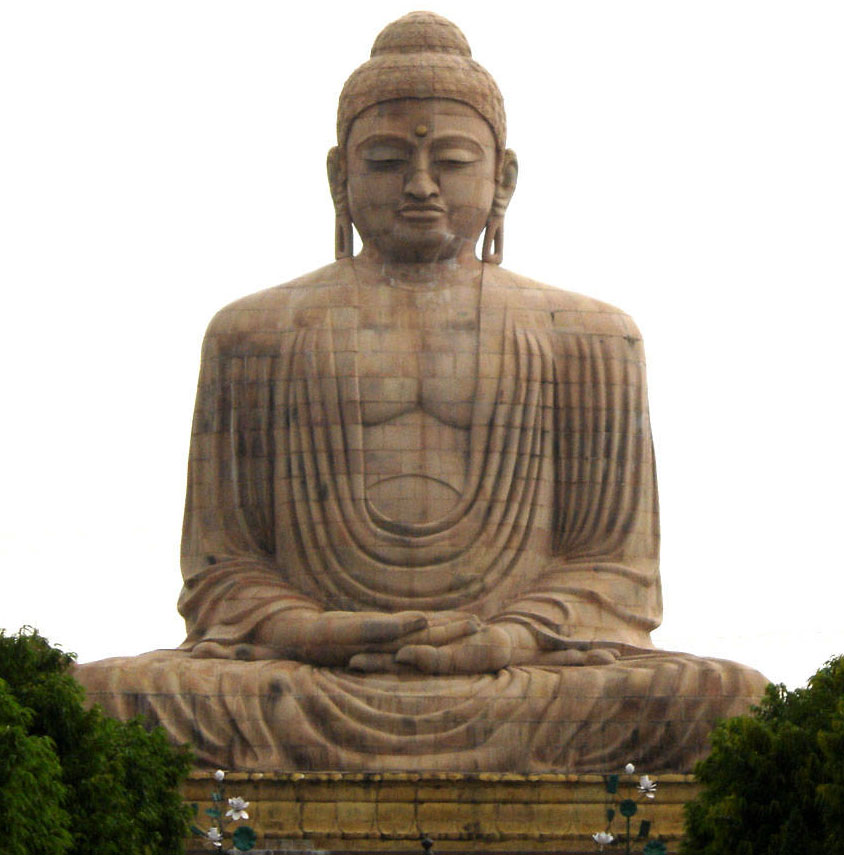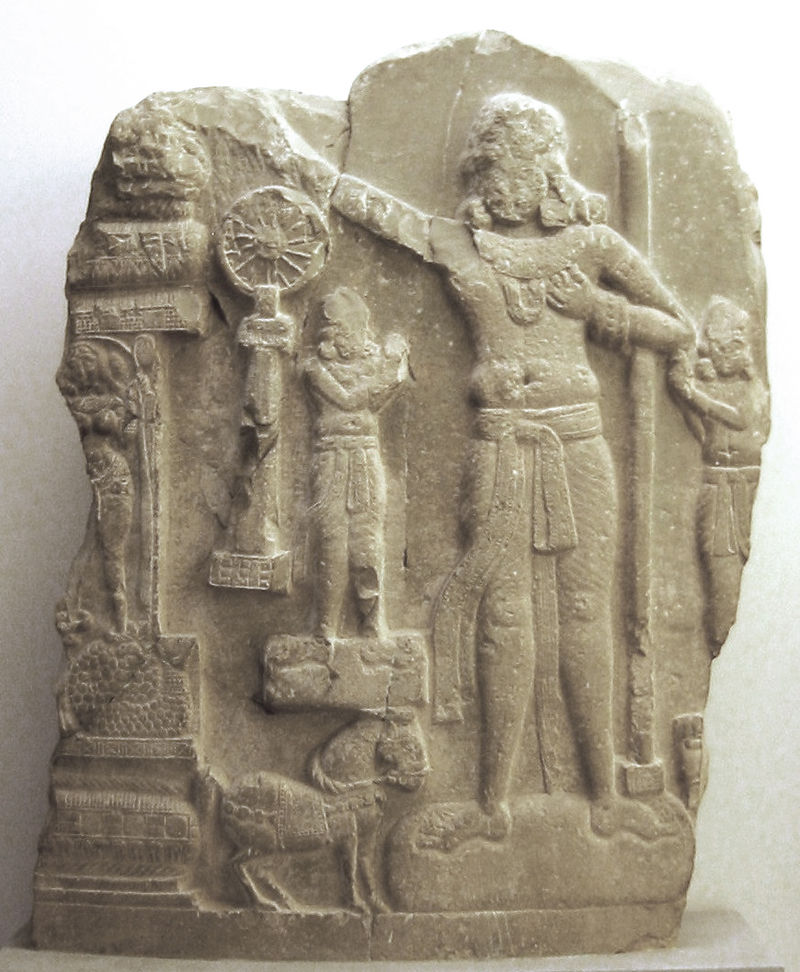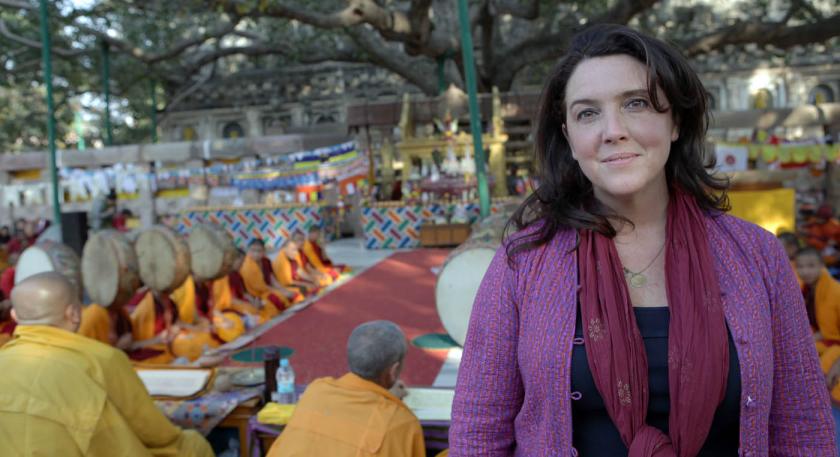This programme was a puzzle. It didn't quite work, and it should have worked an absolute treat, as Buddhism is in some respects the religion, or rather the way of life, that has more and more caught the attention of the West in terms of scholarship and practitioners. It was an hour-long visual history, tracing in a trip through the subcontinent the life of the Buddha, presented by the charming and knowledgeable historian Bettany Hughes.
It was the first instalment in a trilogy examining the life, times and thought of three philosophers: Buddha, Confucius and Socrates, all of whom lived about 2500 years ago. All, it is claimed, more or less invented the modern world. Presumably the term "genius" refers to their indisputable contribution to changing the ways in which we think about the fundamental questions, as it was put, of life, death, what lies between and after. And even more, how do we live the good life? (the Great Buddha at Bodh Gaya, pictured below).
 Our enthusiastic presenter traced the journey both in real space and in terms of the changing philosophies of the Himalayan prince, born in what is now Nepal, who in spite of an overwhelmingly protective father who shielded him from reality as best he could, nevertheless witnessed poverty, sickness and death. The Buddha left his inheritance and his life of luxury, not to mention a wife and child, to journey to the plains of northern India, searching for a way to liberate humanity from suffering.
Our enthusiastic presenter traced the journey both in real space and in terms of the changing philosophies of the Himalayan prince, born in what is now Nepal, who in spite of an overwhelmingly protective father who shielded him from reality as best he could, nevertheless witnessed poverty, sickness and death. The Buddha left his inheritance and his life of luxury, not to mention a wife and child, to journey to the plains of northern India, searching for a way to liberate humanity from suffering.
We learned of the Buddha’s attempts to withdraw from the world and his exploration of extreme forms of self-denial, and his search for the self through meditation. Six years of self imposed hardship came to nothing, and finally a third way, between self-indulgence and self-mortification, was found.
The query here is what television can do that radio couldn’t do better. Yes, the scenes on view were picturesque, exotic and even at times unfamiliar, but also confusing. Captions were scant or too brief to catch, so that the viewer often did not know quite where we were. It was assumed that we could easily remember the difference between dharma and karma, that "sangha" meant the community of, in this instance, Buddhist monks and nuns, and that "samsara" is the cycle of birth, death and reincarnation.
Many a modern city, the cliché of India with motorised traffic, rickshaws, and pedestrians going every which way, was on view, but in what city and why? Where were the monks who were interviewed, at one point swinging cable cars carrying them up a mountainside? Who was the Zen master who was interviewed, his name and location whisking by? A roadside sign told us we were in Dharamsala, but did we know this was now the home of Tibetan Buddhism?
 A map indicated we had reached Varanasi, and we visited Patna, the capital of the tyrannical and cruel despot Ashoka. Two centuries after the Buddha, he inexplicably embraced Buddhism after the bloody battle of Kalinga, and devoted the rest of his life to spreading its teachings (pictured left, a relief from Amarati, believed to depict Ashoka).
A map indicated we had reached Varanasi, and we visited Patna, the capital of the tyrannical and cruel despot Ashoka. Two centuries after the Buddha, he inexplicably embraced Buddhism after the bloody battle of Kalinga, and devoted the rest of his life to spreading its teachings (pictured left, a relief from Amarati, believed to depict Ashoka).
But we needed more clarity in this mosaic of a programme. We were disorientated, perhaps deliberately, as Buddhism (we were told) emphasises above all else impermanence and change: the only certainty is uncertainty.
We ended on a valuable note of rational calm, with a short interview with the octogenarian Professor Amartya Sen, an agnostic if not atheist economist. He told us in a reflection of Buddhist teaching that torturing the body does not improve the mind; that without agreeing on a metaphysical view, we could solve problems by reflection, knowledge, critical imagination and cultivating the mind, and we could agree on good actions whether there is a god or not.















Add comment